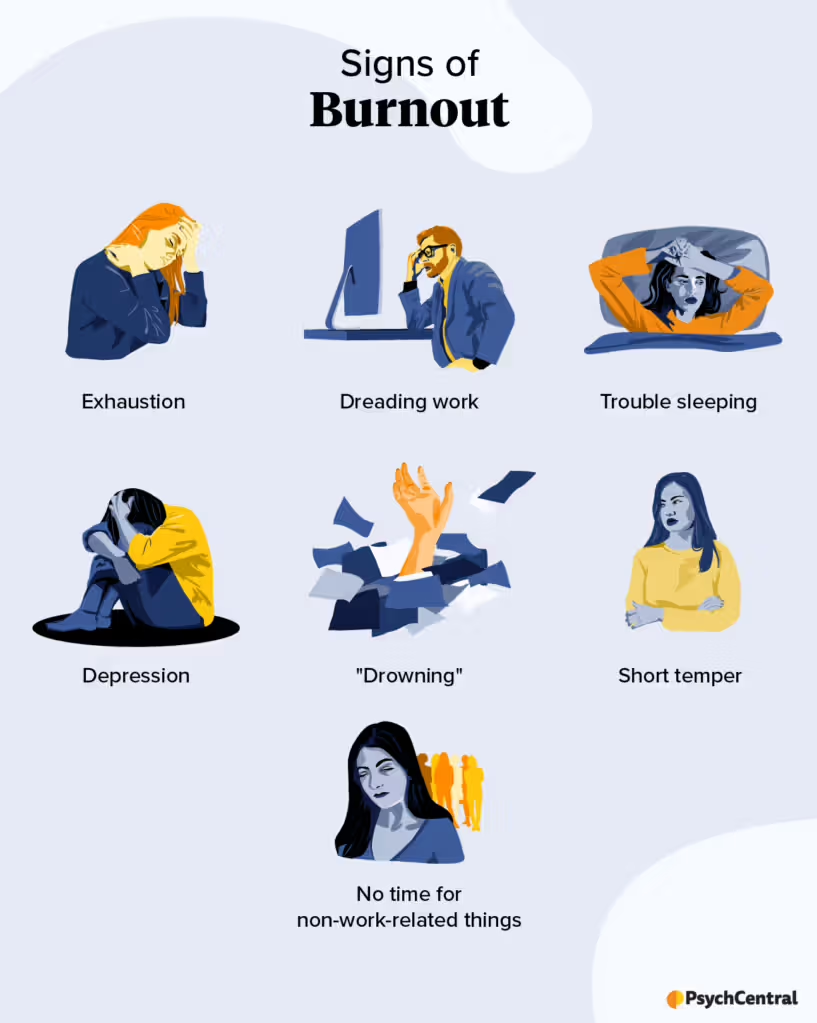Burnout Syndrome in Students: How to Recognize and Manage It?
Burnout syndrome, once primarily associated with managers responsible for significant work obligations, is increasingly common among students. The combination of academic pressure, work duties, and often personal commitments can lead to exhaustion, frustration, and a loss of motivation. How can you recognize the symptoms of burnout, and what can you do to overcome it?
What is Burnout Syndrome?
Burnout syndrome is a state of physical, mental, and emotional exhaustion caused by prolonged stress and overwork. In students, it frequently arises during exam periods, thesis writing, or when balancing studies, part-time jobs, and personal life.
Key symptoms include:
- Physical exhaustion – lack of energy, sleep problems, frequent headaches, or muscle tension.
- Psychological symptoms – loss of motivation, apathy, feelings of frustration or failure.
- Cognitive difficulties – impaired concentration, forgetfulness, and trouble making decisions.
- Emotional exhaustion – irritability, feelings of hopelessness, or withdrawal from others.
If you are unsure whether you are experiencing burnout, you can try this free test by Hedepy. However, keep in mind that test results are only indicative and should be taken with caution. It is always best to consult with a professional.

Why Are Students at Risk?
Students often face high expectations—not only their own but also from parents, teachers, or society. Added to this is performance pressure, uncertainty about the future, and limited time for rest. Many students also work to cover living expenses, further increasing their burden.
How to Prevent Burnout
Prevention is crucial. Here are some tips to manage stress and avoid burnout:
- Plan your time effectively – break large tasks into smaller parts and set realistic goals.
- Prioritize rest – take regular breaks, aim for 7–8 hours of sleep per night, and engage in activities you enjoy.
- Talk about your problems – share your feelings with friends, family, or seek help from the VŠE psychological counseling centre.
- Take care of your body – regular exercise, a healthy diet, and adequate hydration positively impact your mental well-being.
- Learn to say “no” – if you feel overwhelmed, do not hesitate to decline additional commitments.
What to Do If You Are Experiencing Burnout
If you feel burnout creeping in, it’s important to act:
- Slow down – take a short break and reassess your priorities.
- Seek professional help – psychologists or coaches can guide you out of this state.
- Focus on small changes – even small steps, like regular exercise or better sleep habits, can bring relief.
You Are Not Alone
Remember, burnout is not a failure but a signal to change your habits and approach to responsibilities. The VŠE Career Centre and the VŠE psychological counseling centre are here for you—whether you need advice on time management, balancing school and work, or just want to talk about your worries.

